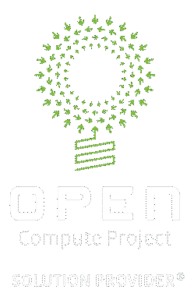IOActive Expands Secure Development Lifecycle Services with Continuous Penetration Testing
New Service Model Designed to Enable Enterprise DevSecOps to Build a Robust Secure Development Lifecycle Seattle, WA – May 21, 2020 – IOActive, Inc., the worldwide leader in research-fueled security services, announced today the introduction of their new Continuous Penetration Testing (CPT) services. This new style of testing is designed to address the challenge of integrating security testing into an agile development model. As many organizations have moved to Continuous Integration and Continuous Deployment (CI/CD) processes the independent validation and verifications processes have not aligned with that enhanced agility…
CTO Talk: Q&A with IOActive’s Cesar Cerrudo
Verdict – Cesar Cerrudo is the CTO of IOActive, a security research company that approaches security from the attacker’s mindset. The US firm’s team of security consultants work with some of the world’s largest organisations to find flaws in their cyber defences. As CTO, Cerrudo leads a team of ethical hackers that have hijacked technology throughout the stack, including jeeps and robots, and often presents his research at leading cybersecurity conferences such as Black Hat and RSA.
Cybersecurity Threats to the Food Supply Chain
SecurityWeek – Are cyber criminals likely to attack the food industry? The answer is clearly ‘yes’; and there are at least three obvious channels: hacktivists, cyber-criminal gangs, and nation states. “Moving to more significant automation is going to change the risk profile in a way that a lot of organizations haven’t formerly had to manage – operational technology has not been considered a high-risk priority,” commented John Sheehy, Sr. Vice President at IOActive.
7 Ways Data and AI Can Be Used to Trick and Deceive the Public
Interesting Engineering – Hackers have been shown to be able to hack into the grid — with worrying ease — and use data in order to affect traffic in various ways. Cesar Cerrudo, an Argentinian security researcher with IOActive examined the vehicle traffic control system installed at major U.S. cities and presented his findings at the Infiltrate conference in Florida. It showed that they can be manipulated to bring traffic to a standstill or to force cars to change their routes.
The Protocol That’s Putting Enterprise IoT At Extreme Risk
Security Boulevard – A protocol little known by executives outside of the networking world may put the future safety of enterprise IoT at extreme risk if organizations don’t take action to secure their connections. New research out last week found that the way that many large organizations are using the Long Range Wide Area Networking (LoRaWAN) protocol is making them susceptible to hacking that could cause civic disruption and even put people at risk.


